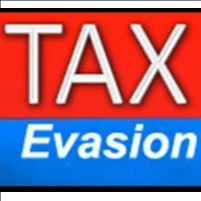Corporations Usually Lose Tax Fraud Cases in Supreme Court
Wednesday, April 11, 2012

Although the current U.S. Supreme Court has the reputation of being pro-business, corporations would be wise not to press their luck with the high court when it comes to tax fraud. Two university law professors found that, historically, businesses lose their legal battles against the Internal Revenue Service (IRS) and the Treasury Department 61% of the time when a case goes all the way to the Supreme Court. The loss rate was even higher (68%) if a corporation is accused of misreading the tax code rather than intentionally abusing it.
Joshua Blank of the New York University and Nancy Staudt of the University of Southern California studied 137 cases heard between 1913 and 2001 in which the federal government alleged that a corporation had abused the tax code. Curiously, they found no such cases for the decade after 2001. In most cases, corporations pushed the legal envelope by devising strategies, such as creating “paper corporations” or offshore tax havens, whose sole purpose was not to build business but to avoid paying taxes. Corporate lawyers like to characterize these strategies as “creative tax planning. The U.S. government prefers the term “corporate shams.”
-David Wallechinsky, Noel Brinkerhoff
To Learn More:
Odds Favor IRS in Supreme Court Tax Cases (by Lynnley Browning, Reuters)
Corporate Shams (by Joshua D. Blank and Nancy C. Staudt, New York University Law Review)
- Top Stories
- Unusual News
- Where is the Money Going?
- Controversies
- U.S. and the World
- Appointments and Resignations
- Latest News
- Trump Goes on Renaming Frenzy
- Trump Deports JD Vance and His Wife
- Trump Offers to Return Alaska to Russia
- Musk and Trump Fire Members of Congress
- Trump Calls for Violent Street Demonstrations Against Himself






Comments